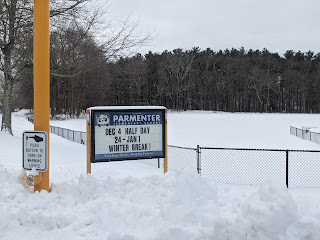Senate Advances Police Reform Legislation
The Massachusetts State Senate today (12/21/20) made changes to an amendment to An Act relative to justice, equity and accountability in law enforcement in the Commonwealth, sent by Governor Baker, thereby allowing the original bill to advance to the House of Representatives for further consideration. In doing so, the Senate responded to the Governor's concerns and potential veto of the legislation while maintaining the integrity of the original bill, one of the most comprehensive legislative responses in the nation to incidents involving police brutality.
Governor Baker threatened to veto a bill that included the original language that would have placed drastic limitations on law enforcement's use of facial recognition technology, mandated transparency on its use and created a commission to inform future regulations. In an effort to preserve the totality of the bill, including the first-in-the-nation civilian-led Massachusetts' Peace Officer Standards and Training (POST) Commission, the Senate adopted changes to the amendment that limits law enforcement's use of facial recognition to appropriate circumstances while maintaining the original bill's requirements on transparency in data collection and the creation of a new commission on facial surveillance.
The Governor's amendment would give the Municipal Police Training Committee (MPTC) control over promulgating regulations of use-of-force standards. Leaders in communities of color made it clear that it is critical for the civilian-led POST commission to have a say in the development of use of force regulations, so the Senate adopted a change that will give the POST commission and MPTC joint responsibility in approving, promulgating and implementing use of force regulations.
"It is my top priority to ensure that meaningful police reform and racial justice legislation get signed into law this session," stated Senate President Karen E. Spilka (D-Ashland). "The bill that we are advancing today is not a magic bullet to reverse the pain and injustice endured by communities of color and those disproportionately affected by law enforcement in Massachusetts—no one is claiming that it is, nor is it even possible for one bill to do that. But when given the choice of making necessary compromises or letting this bill be vetoed, it was unconscionable to me to not do what was necessary to lay this important foundation of accountability and transparency. I am very proud of the efforts of Senator Brownsberger and Senator Chang-Díaz to get us to this point today, but our fight for justice and equity is not over. I remain committed to listening to communities of color and doing the hard work of advancing legislation that brings us closer to our goal."
"At this point, we are in the homestretch," said Senator Will Brownsberger (D-Belmont), Senate Chair of the Joint Committee on the Judiciary. "I am very hopeful that we will cross the finish line, because I see that all of the key leaders — the Senate President, the Speaker and the Governor feel strongly that this historic bill needs to get done."
"Communities of color pushed through heartbreak, rage, and exhaustion to get meaningful law enforcement reform this far—and made more sacrifices and compromises than they should have been asked for," said MBLLC Member Senator Sonia Chang-Díaz (D-Boston). "There's a lot that remains undone, work that this bill will not finish. And yet this bill is a testament to the fact that, in the face of so many righteous voices calling for justice, the political system does bend to effort. 'Power concedes nothing without a demand,' and over the past several months, gutsy, sustained organizing has wrought landscape-changing reform to reduce police misconduct and strengthen accountability. It's because of advocates, organizers, and community members that this legislation stands so close to becoming law, and it's because of their ongoing efforts that next session we will continue on this path towards necessary, long-overdue justice."
Other changes are administrative or clarifying in nature. The amended language now goes to the House of Representatives for further action.

